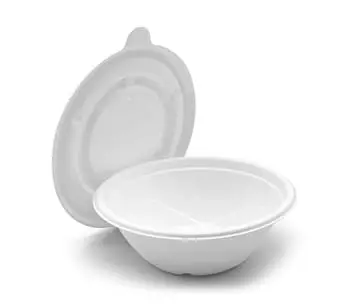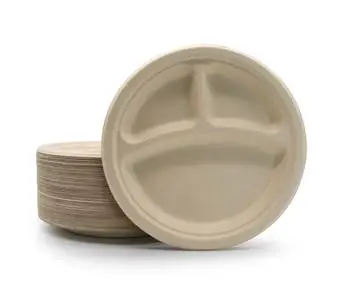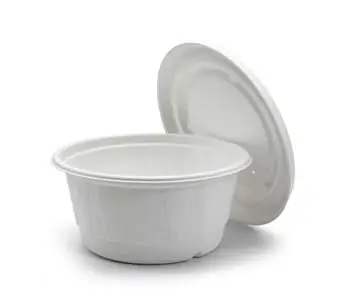Bagasse waste has become a pressing global concern, with its adverse impact on the environment and human health becoming increasingly evident. In response to this crisis, the concept of eco-friendly Bagasse cups has emerged as a compelling solution.
These cups are designed to minimize the environmental footprint associated with traditional Bagasse cups by utilizing alternative materials that are more sustainable and less harmful to our planet. By exploring the definition of eco-friendly Bagasse cups, understanding their significance in reducing Bagasse waste, and delving into the wholesale market for such products, we can gain valuable insights into this growing industry and its potential for positive change.
Definition of Eco-Friendly Bagasse Cups
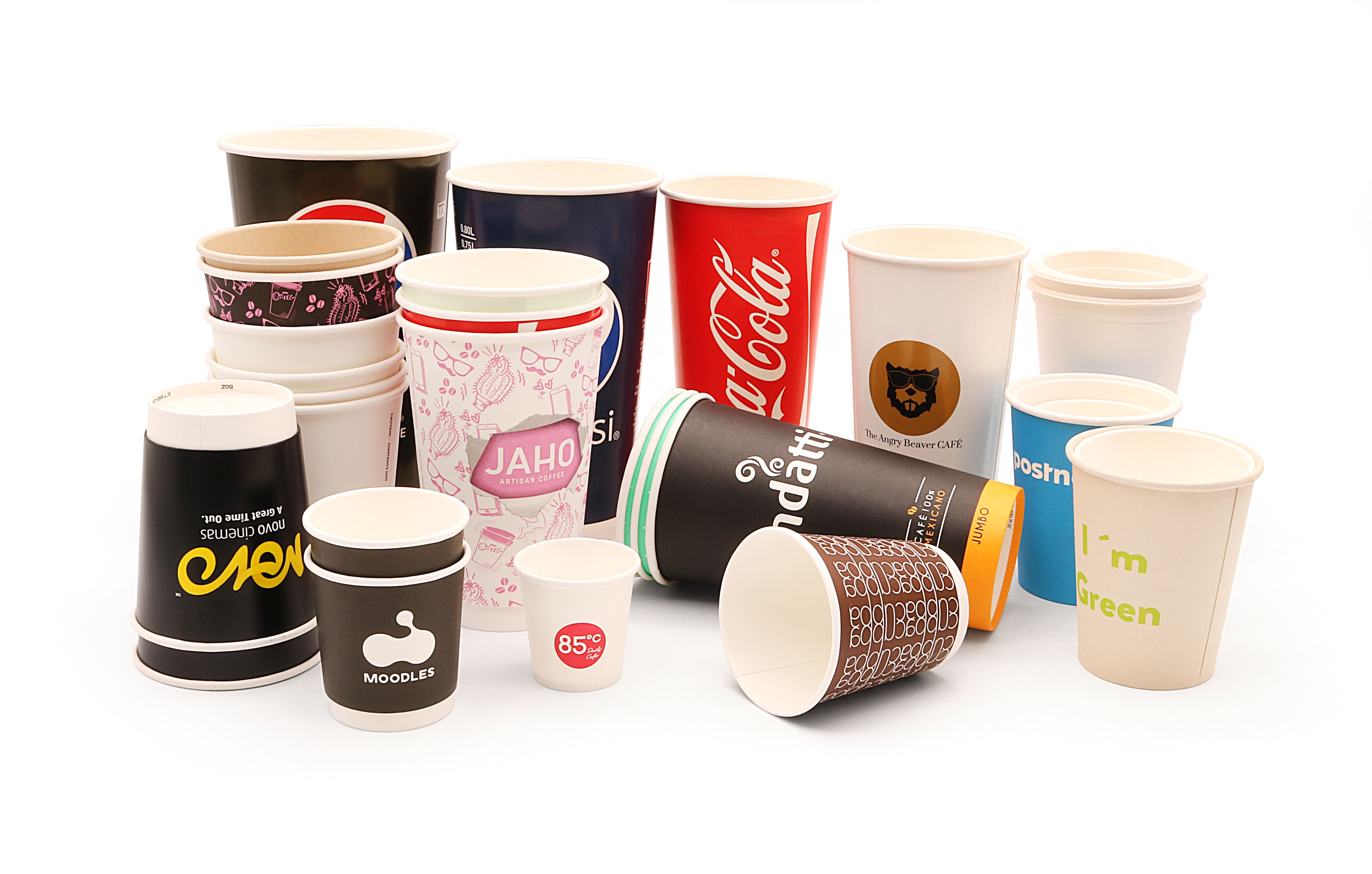
Eco-friendly Bagasse cups can be defined as those that are manufactured using materials that have a lower impact on the environment compared to conventional Bagasse. These materials often include biodegradable Bagasse, compostable Bagasse, or recycled Bagasse.
Biodegradable Bagasse break down naturally over time through biological processes, while compostable Bagasse decompose in specific industrial composting facilities under controlled conditions. Recycled Bagasse are made from post-consumer or post-industrial sources and help reduce the demand for virgin raw materials.
Importance of Eco-Friendly Alternatives in Reducing Bagasse Waste
The importance of eco-friendly alternatives in reducing Bagasse waste cannot be overstated. Traditional plastic cups take hundreds of years to decompose, lingering in landfills or polluting oceans and harming marine life along the way.
Wholesale sugarcane waste cups serve as a crucial eco-friendly alternative to traditional plastic cups, as they are made from biodegradable materials that break down naturally over time. By opting for wholesale sugarcane waste cups, businesses can significantly reduce their environmental impact, contributing to a cleaner and healthier planet for future generations.
By transitioning to eco-friendly options, we can significantly mitigate these adverse effects on our planet. When disposed of properly or recycled appropriately, eco-friendly Bagasse cups have a reduced environmental impact due to their ability to biodegrade or be transformed into other useful products without causing harm.
Overview of the Wholesale Market for Eco-Friendly Bagasse Cups
The wholesale market for eco-friendly Bagasse cups is experiencing remarkable growth, driven by the increasing demand for sustainable alternatives in the food and beverage industry. With consumers becoming more environmentally conscious, businesses are recognizing the need to offer eco-friendly options to meet this growing market niche. Major manufacturers and distributors, such as Eco-Products, Vegware, Biopak, and Genpak, have emerged as key players in this domain.
These companies offer a wide range of certified eco-friendly Bagasse cups that comply with compostability standards like ASTM D6400 and EN13432 while ensuring FDA approval for food contact safety. Additionally, local suppliers and regional distributors play a vital role in catering to specific markets by offering specialized variations of eco-friendly Bagasse cups.
Understanding Eco-Friendly Bagasse Cups
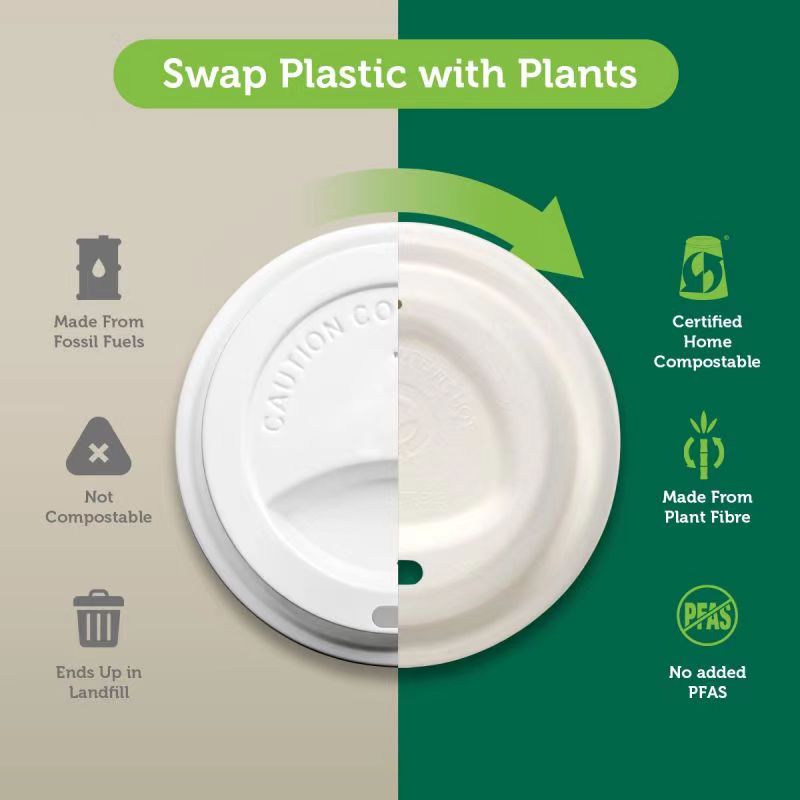
Different Types of Eco-Friendly Materials Used in Manufacturing
When it comes to eco-friendly Bagasse cups, manufacturers have embraced various materials that offer sustainable alternatives to traditional Bagasse. Three notable types are biodegradable Bagasse, compostable Bagasse, and recycled Bagasse.
To complement eco-friendly Bagasse cups, manufacturers also offer a range of bulk compostable utensils that align with sustainable principles. These utensils, made from compostable materials, provide a complete eco-conscious solution for businesses looking to adopt sustainable practices while maintaining functionality and convenience.
Biodegradable Bagasse such as polylactic acid (PLA) and polyhydroxyalkanoates (PHA) are derived from renewable sources like corn starch or sugarcane. Compostable Bagasse like polybutylene adipate terephthalate (PBAT) and polybutylene succinate (PBS) decompose naturally under specific conditions without leaving harmful residues.
Recycled Bagasse, such as recycled polyethylene terephthalate (rPET), are made from post-consumer waste to reduce the demand for new raw materials. Each type offers its unique benefits and contributes towards a more sustainable future.
Advantages of Using Eco-Friendly Bagasse Cups
By opting for eco-friendly Bagasse cups, we can significantly reduce the carbon footprint and greenhouse gas emissions associated with their production compared to traditional Bagasse cups. The manufacturing process for eco-friendly materials often requires less energy consumption and emits fewer pollutants into the atmosphere. Additionally, these cups possess a lower environmental impact when disposed of or recycled properly compared to conventional Bagasse cups that can take centuries to decompose in landfills.
By choosing eco-friendly options, we can actively contribute to mitigating the adverse effects of Bagasse waste on our ecosystems while supporting a circular economy approach that minimizes resource depletion. With an understanding of the different types of eco-friendly materials used in manufacturing Bagasse cups and their associated advantages, it becomes evident that embracing sustainability is not only crucial but also beneficial for both businesses and the environment at large.
Growing Demand for Sustainable Alternatives in the Food and Beverage Industry
Subtitle: Embracing Responsibility for a Greener Future In recent years, the food and beverage industry has witnessed a significant shift towards sustainability as consumers become more conscious of their environmental impact. With Bagasse pollution posing a grave threat to our planet, businesses are recognizing the need to adopt eco-friendly alternatives.
This growing awareness has fueled the demand for sustainable products, with Bagasse cups being no exception. The food and beverage industry now actively seeks out wholesale suppliers that offer eco-friendly Bagasse cups as an integral part of their sustainability efforts.
Key Players in the Wholesale Market for Eco-Friendly Bagasse Cups
Subtitle: Pioneers Shaping the Path to Sustainability Several major manufacturers and distributors have emerged as industry leaders in providing eco-friendly Bagasse cups wholesale, offering innovative solutions that cater to both consumer demands and environmental concerns. Among these leaders are prominent companies such as Eco-Products, Vegware, Biopak, and Genpak.
Eco-Products is renowned for its extensive range of compostable packaging solutions made from plant-based materials like PLA (Polylactic Acid). Their product line spans various sizes and designs of eco-friendly Bagasse cups suitable for both hot and cold beverages.
Moreover, they hold recognized certifications such as ASTM D6400 and EN13432 for compostability, ensuring their products meet stringent environmental standards. Vegware takes pride in its comprehensive selection of compostable foodservice packaging made from bioBagasse derived from renewable or recycled resources.
Their diverse range includes durable yet eco-friendly Bagasse cups suitable for various applications. These cups are designed with the highest standards of quality and have obtained certifications from reputable organizations like BPI (Biodegradable Products Institute) to guarantee their compostability.
Biopak positions itself as an industry frontrunner by offering sustainable packaging solutions beyond just biodegradable options. They specialize in manufacturing disposable food and beverage products using renewable resources and recycled materials.
Their Bagasse cup range, which meets FDA approval for food contact safety, showcases their commitment to combining environmental responsibility with uncompromising quality. Genpak, a long-standing player in the packaging industry, has expanded its product portfolio to include eco-friendly Bagasse cups wholesale.
They utilize rPET (recycled polyethylene terephthalate) to create durable cups with a reduced environmental impact. By upcycling post-consumer recycled materials into new products, Genpak demonstrates a commitment to a circular economy.
Local Suppliers and Regional Distributors Catering to Specific Markets
Subtitle: Tailoring Sustainable Solutions Locally Apart from global manufacturers and distributors, there is also a thriving network of local suppliers and regional distributors that cater to specific markets.
These entities recognize the importance of meeting local demands while supporting sustainability goals. Local suppliers often focus on sourcing eco-friendly Bagasse cups from regional manufacturers or distributors who prioritize reducing their carbon footprint by minimizing transportation distances.
This approach ensures that businesses and consumers can access sustainable alternatives more efficiently while supporting local economies. Regional distributors play a crucial role by bridging the gap between manufacturers and businesses within specific geographical areas.
They streamline distribution processes, provide personalized customer support, and actively promote sustainability initiatives within their local networks. By working closely with these distributors, businesses can easily access eco-friendly Bagasse cups tailored to their unique market requirements.
The wholesale market for eco-friendly Bagasse cups is witnessing remarkable growth driven by the rising demand for sustainable alternatives within the food and beverage industry. Major manufacturers such as Eco-Products, Vegware, Biopak, and Genpak are at the forefront of this movement with their innovative product ranges backed by certifications ensuring compostability and safety standards.
Moreover, local suppliers and regional distributors contribute significantly by catering to specific markets while embracing sustainability objectives at a grassroots level. Together they pave the way for a greener future, where eco-friendly Bagasse cups become the norm rather than the exception.
Factors to Consider When Purchasing Wholesale Eco-Friendly Bagasse Cups
Quantity Requirements and Pricing Options Offered by Wholesalers
When considering the purchase of eco-friendly Bagasse cups in wholesale, it is important to assess the quantity requirements and pricing options offered by wholesalers. Many suppliers provide bulk purchase discounts, incentivizing customers to buy in larger quantities. These discounts can be substantial and offer significant cost savings for businesses.
It is advisable to carefully evaluate the pricing structure and compare it with the anticipated demand for eco-friendly Bagasse cups in your establishment. This will ensure that you strike a balance between cost efficiency and avoiding unnecessary stockpiling.
Bulk Purchase Discounts
Bulk purchase discounts are an enticing aspect of purchasing wholesale eco-friendly Bagasse cups. Wholesalers often offer tiered pricing structures, providing more attractive rates as the order volume increases.
These discounts not only reduce the unit cost but also encourage businesses to make larger commitments towards sustainable practices by purchasing in larger quantities. By taking advantage of bulk purchase discounts, establishments can both save money and contribute to reducing single-use Bagasse waste.
Minimum Order Quantities
While bulk purchase discounts may sound appealing, it is essential to consider the minimum order quantities (MOQs) set by wholesalers. MOQs vary among suppliers but generally ensure that economies of scale are achieved during production and shipping processes.
When evaluating the cost of biodegradable tableware, it is important to take into account the minimum order quantities (MOQs) set by wholesalers. While these MOQs may seem inconvenient for smaller businesses, they ultimately contribute to cost efficiency by optimizing production and shipping processes in the long run.
However, smaller businesses or establishments with limited storage capacity might find higher MOQs challenging to meet initially. Therefore, it is crucial to strike a balance between assessing your immediate needs and future demand when placing an order.
Quality Standards and Durability Considerations for Different Types of Eco-Friendly Materials Used in Cup Production
Besides quantity requirements and pricing options, another crucial factor when purchasing wholesale eco-friendly Bagasse cups pertains to quality standards and durability considerations associated with different types of materials used in cup production. Biodegradable, compostable, and recycled Bagasse each have their unique properties and advantages. Assessing the durability of these cups is important to ensure they can withstand typical usage conditions without compromising their eco-friendly attributes.
Look for certifications such as ASTM D6400 or EN13432, which assure that the cups meet specific compostability standards. Additionally, consider other relevant industry certifications like BPI certification or FDA approval for food contact safety, depending on your specific requirements.
As businesses increasingly embrace sustainable practices, the demand for eco-friendly Bagasse cups in wholesale has surged. By carefully considering factors such as quantity requirements, pricing options, bulk purchase discounts, minimum order quantities, and quality standards, establishments can make informed decisions that align with their budgetary constraints and sustainability goals.
Investing in wholesale eco-friendly Bagasse cups not only contributes to reducing Bagasse waste but also showcases a commitment to environmentally responsible practices. By taking this step towards sustainability together with wholesalers and suppliers dedicated to eco-conscious manufacturing processes, we can collectively work towards a greener future where single-use Bagasse become a thing of the past.




